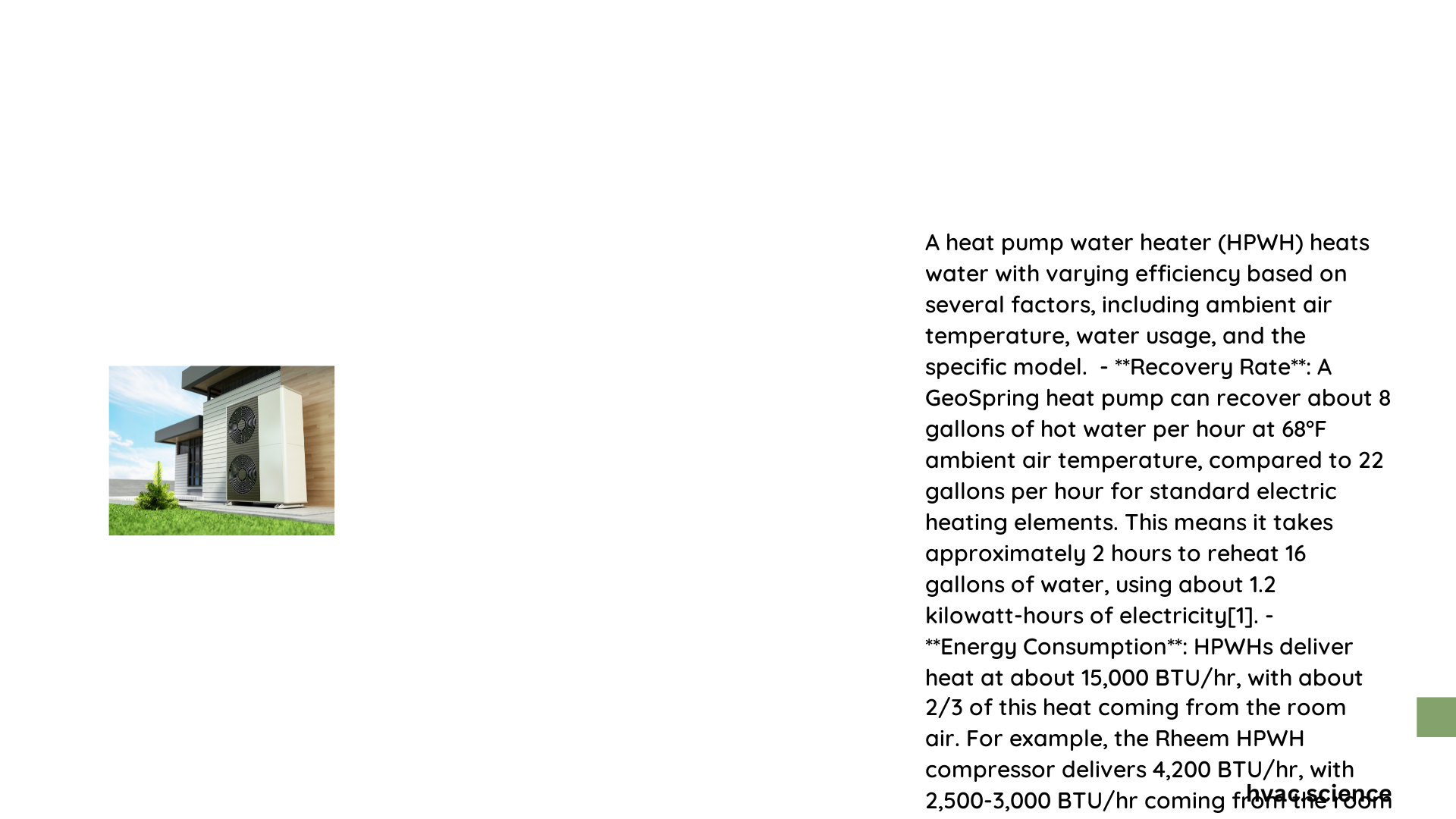Heat pump water heaters represent a sophisticated technology that transforms ambient air energy into hot water, with heating times varying between 2-6 hours depending on multiple environmental and technical factors. These innovative systems extract thermal energy from surrounding air, transferring it efficiently to water through advanced thermodynamic processes, making them a compelling alternative to traditional water heating methods.
What Determines Heat Pump Water Heating Speed?
Heat pump water heaters operate through complex thermal transfer mechanisms that influence their water heating velocity. Several critical factors impact their performance:
How Fast Can a Heat Pump Actually Heat Water?
| Water Volume | Ambient Temperature | Heating Time | Recovery Rate |
|---|---|---|---|
| 50 gallons | 68°F | 6.25 hours | 8 gal/hour |
| 40 gallons | 55°F | 5-7 hours | 6 gal/hour |
| 80 gallons | 70°F | 8-10 hours | 10 gal/hour |
Key Performance Metrics
- Coefficient of Performance (COP)
- Typical range: 2-4
- Higher COP indicates faster heating
-
GE GeoSpring averages around 3.5 COP
-
Thermal Transfer Rates
- Average heat delivery: 15,000 BTU/hr
- Approximately 2/3 heat sourced from ambient air
- Comparable to 3/4 ton air conditioning unit
What Environmental Factors Impact Heating Speed?
Heat pump water heater performance significantly depends on:
- Ambient Air Temperature
- Optimal performance: 68-85°F
- Reduced efficiency below 55°F
-
Potential 30-50% slower heating in cold environments
-
Humidity Levels
- Higher humidity enhances heat transfer
- Dry environments may reduce heating efficiency
How Do Different Models Compare?
Performance Comparison
| Model | Recovery Rate | Power Consumption | COP |
|---|---|---|---|
| GE GeoSpring | 8 gal/hour | 550 watts | 3.5 |
| Rheem Hybrid | 10 gal/hour | 750 watts | 3.7 |
| AO Smith | 7 gal/hour | 500 watts | 3.2 |
What Cost Implications Exist?
- Initial Investment: $1,000 – $2,000
- Annual Operating Cost: Approximately $100
- Energy Savings: Up to 60% compared to traditional electric heaters
Technical Insights for Optimal Performance
Homeowners can maximize heat pump water heater efficiency by:
- Maintaining consistent ambient temperatures
- Ensuring proper ventilation
- Regular maintenance
- Installing in temperature-stable environments
Practical Recommendations
- Choose models with higher COP ratings
- Consider installation location carefully
- Implement supplemental heating strategies for extreme conditions
- Monitor and maintain system regularly
Final Technical Assessment

Heat pump water heaters represent a nuanced technology where heating speed depends on multiple interconnected variables. While average heating times range from 2-6 hours, strategic selection and installation can optimize performance significantly.
Limitations and Considerations
- Performance degrades in extreme temperatures
- Initial investment higher than traditional systems
- Requires specific environmental conditions
Reference:
– GE Appliances Heat Pump Water Heater Documentation
– Energy Star Heat Pump Guidelines
– Department of Energy Efficiency Reports
